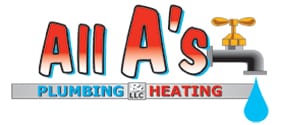By the looks of the recent weather, it’s safe to say that the winter may be warm as well as cold. We have already had a few cold snaps, with nighttime temperatures below freezing. If there’s one thing no homeowner wants to deal with, it’s frozen pipes. When frozen pipes burst inside or outside your home, they can cause thousands of dollars in damage and insurance claims.
Do you know how to prevent frozen pipes? Do you know what to do if your pipes freeze? Here are some answers to your questions about frozen pipes.
Frozen Pipes Symptoms
It’s easy to understand why pipes freeze. When water gets to its freezing point, it expands. If it’s cold enough and the water freezes, a pipe will expand and, eventually, burst.
There are several signs that a pipe might have frozen. First, look for pipes covered in frost. The pipes might also be bulging — the metal looks like it’s expanding. Sometimes you won’t be able to see the problem.
Are your toilets flushing, but not refilling?
Can you get any water in your sinks or your washing machine? If not, you may have frozen pipes. You might also hear the sound of dripping or running water.
What Should You Do Next?
If you think you have a frozen pipe, you should immediately shut off its water supply. You have to do that before you can thaw out the pipe. If you don’t, there may be more damage.
Usually, the ice in the pipe is acting as a plug and keeping the water contained in the pipe. Once the pipe thaws, nothing is holding back the water if you haven’t shut it off.
Next, make sure that you have a bucket nearby to catch any water once you begin thawing the pipe. You can begin to thaw it gently if you think you can do it yourself. You can use a heater, a hairdryer, a heat lamp, or heat tape. Don’t try to use any kind of torch. You could start a fire.
Will frozen pipes thaw on their own? Yes, but you may not want them to. You may want to do that yourself because, then, you can control the damage. Once the pipe has thawed and you’ve cleaned up the mess, make sure to check for wet spots. You will need to dry or dehumidify them. Make sure there’s no mold or mildew after you have cleaned up. You will need to check the area for a few days to make sure nothing is growing.
If you’re not sure how to thaw frozen pipes in a wall, you can try a heater. However, if the pipe inside the wall bursts, it will be an extremely difficult cleanup. In this case, you may want to call a professional.
How to Prevent a Burst Pipe
The best way to avoid a giant cleanup and a giant headache is to prevent your pipes from bursting. You may want to wrap any exposed pipe outside. There are boxes and guards you can put on outside pipes to prevent them from bursting. You can also wrap them in a cloth or other materials to prevent them from freezing. If you are worried about the pipes inside your house, you can let your faucets drip a little at night. This will make it difficult for the pipes inside your house to freeze.
Do you have a frozen pipe? Do you need more information about how to spot a frozen pipe? Make sure to contact All A’s Plumbing & Heating, in Randolph, New Jersey. We are here to help you and offer 24-hour emergency as well.


Recent Comments